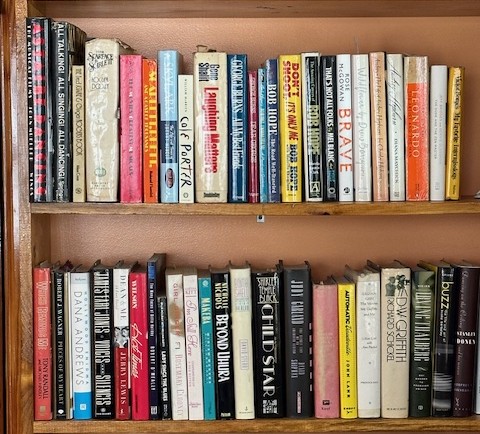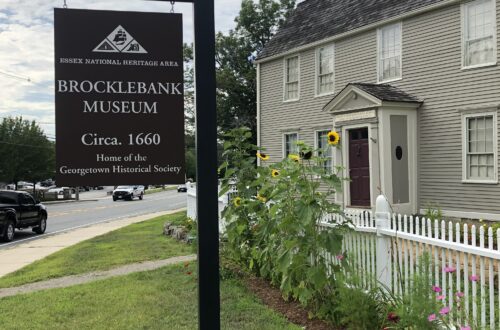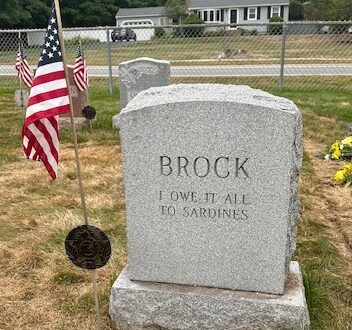I fell in love with books at a young age. The first volumes I owned were secondhand paperbacks, handed down to me by relatives and neighbors. I remember the outline of thin treasures lined up on my bookshelf, dogeared and thumbed-through hundreds of times, lovingly memorized by a child willing to take another journey through her imagination at any moment. I wept when bedtime came because that meant lights out, although I learned some stealthy ways of keeping my reading area lighted. (The light by the side door cast enough illumination into my room if I left it on “accidentally on purpose”, and of course there was the stolen flashlight.) The household became aware of my deceptions, however, and my efforts were often curtailed.
Then of course there was the public library. Like a lot of towns in New England mine was in a huge, old building, and stepping over the threshold created pure magic. I had read enough Dickens (left behind by my grandmother) and other ghost stories to fire my imagination about this wonderful old building with dark wood, vaulted ceilings, and towering stacks of books. I gobbled biographies and mysteries, stories of supernatural creatures, historical fiction and classics, borrowing as many books as I was allowed at one time. Once I got to school my reading skills were found to be at least 3 grades ahead of whatever grade I was in. Although other subjects such as math and science eluded my concentration, my first love – the written word – remained a joyful fascination.
“Books and doors are the same thing. You open them,
and you go through into another world.”
– Jeanette Winterson
As a teenager, I started looking around for a part time job, and I found it at my library as a Page. Although excited at first, I ultimately found it quite monotonous during down times. None of us younger employees were allowed up on the third floor, and of course that made the prospect all the more tantalizing. (I had visited the third floor once years before while dropping off a box for the historical society but all I could remember were old artifacts under glass and historical uniforms in a dimly lit room.) What else could be up there? What didn’t they want us to see? The temptation was irrisistable. One day I waited until there was no one around, jumped the velvet rope and sped up the stairs only to find the door locked.
I didn’t work at the library for long, but I happily saved up my meager wages so I could take the bus into Boston, to do what? To visit secondhand bookstores and buy more books of course. I collected all kinds of classics: Shakespeare, Tennyson, Stevenson, Kipling, Alcott. For those of you who know Boston’s history, this was before the Brattle Bookshop fire, during those great days when there were still many used bookstores to choose from, and when a subway token cost less than a dollar. To me there was nothing better than the prospect of filling up an empty shopping bag at the beginning of a sunny, summer day. Coming home on the bus with a heavy bag (or two) meant victory, and the fun of rearranging my bookshelves.
The next conventional step in enlightenment after K-12 is higher education, and for that you need textbooks. Heavy, overpriced volumes with tiny writing that become outrageously outdated all too often. Secondhand versions are only slightly less expensive, and your arms will ache from carrying them. A modern trend of renting textbooks has been an affordable alternative. And yet, when I have enjoyed a class and had an amazing experience with a professor, I have willingly purchased those fat books if I could afford them just to have a tangible piece of the time I spent when my imagination was swept away, a souvenir of the moment when my intellect was expanded.
Books are truly time machines. They possess the same magic as a flying carpet, or a magician’s wand.
“Books may well be the only true magic.”
– Alice Hoffman
Today’s children have fantasies fed to them by video games, social media, and endless animated television and films. Modern day parents face a losing battle in restricting their children from this media onslaught by limiting screen time. We have all heard versions of alarming statistics, and seen toddlers mesmerized by iPads. The world is changing. Will the latest generation produce a variety of writers, inventors and other kinds of dreamers? Only time will tell.
A librarian friend of mine lately expressed remorse over the fact that, while it is easy to look up the definition of a single word online, the experience of seeing where a word lies alphabetically in relation to all the other words surrounding it has been eliminated for most people. It’s true! Even high school students are using their phones to look up definitions and no longer know that “around” comes after “army”, “aroma” and “arose” and that “arrange”, “arrangement” and “arrest” come after it on the same page. The simple, tactile experience of turning the physical page of a dictionary is gone, probably forever.
I used to own a rhyming dictionary, but since there are free online databases now, I no longer require it. This point-and-click convenience is a great time saver. Technology improves our lives.
Or does it?
I recall the salad days of the great Boston Sunday Globe, so thick you had to grab it with two hands (read another article about the Globe here) a treat for which its audience waited all week long. This issue contained expansive articles about the city and its suburbs, with regional sections as well, editorials, sports, a huge arts and entertainment section, and a massive section in the back full of advertisements. If you wanted to find a job, you looked in the Sunday Globe. This newspaper contained literally everything you wanted to know about eastern Massachusetts during that particular week. It was a ritual to get a copy, sit down with a cup of coffee (or two) and go through the pages. It was hard to do in one sitting. It could be a long, exhaustive process, ripping out pieces, marking up pages, making notes to follow up with phone calls the next week, but it was incredibly satisfying.
The paper world is dying, but we should not forget its elegance. These days paper copies of tickets, playbills and invitations are tossed in recycling barrels, but years ago they were pasted into scrap books with reverence. Let us not forget the scenes in every film version of “Little Women” which depict the sisters cutting and pasting treasured paper flowers and hand-written advertisements into their Pickwick Papers (even better, you could read the book). We humans have been writing down our words to communicate for 4,000 years, and using a printing press to create newspapers and books since 1440 (the first printing press came to America in 1638, read about it here). The internet is a simply the latest way to manifest our urge to communicate, but we must honor what came before; the written word on a piece of paper inside a book is a precious thing that should never be taken for granted.




